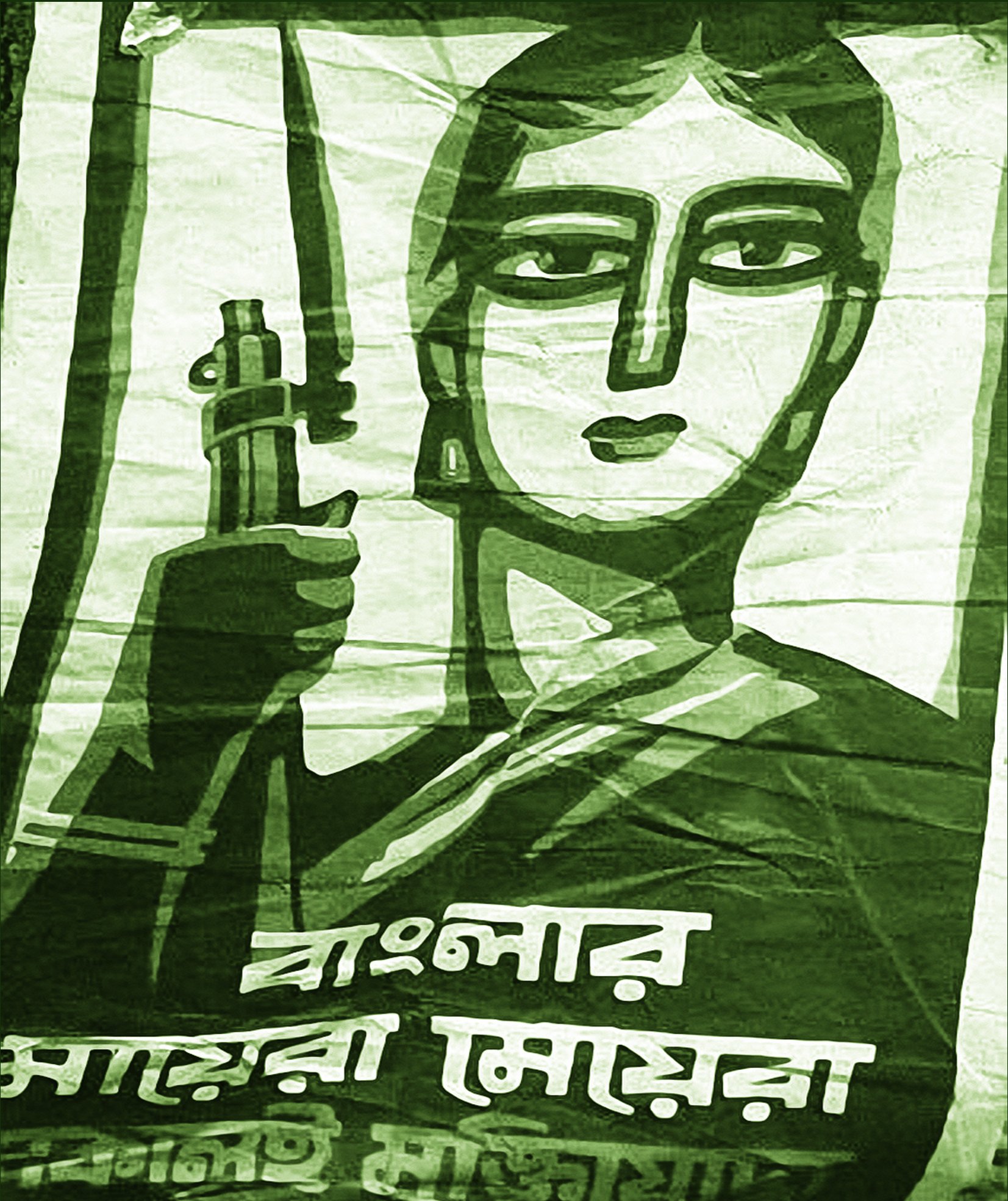The 1971 Bangladesh genocide: Lessons in history for ‘Woke’ America


On a chilly January morning, Ila Mitra, a 25-year-old Hindu girl was arrested for leading a protest of thousands of indigenous Hindus, farmworkers in Rajshahi, East Pakistan. The farmworkers were brutally beaten by the Ansars, an Islamist militia that acted as paramilitary enforcers of the Pakistan Army. Ila was packed into a truck and send to jail. What Ila endured for the next four years, would have made a stay in ISIS prison from 2015 Raqqa look like a Tropical Resort. Ila Mitra was raped every week for the next four years, sexually tortured and kept in complete isolation. In 1954, after her health deteriorated, the government of Pakistan exiled her to India.
Like most young Bengali Hindus in that era, Ila had grown up on a steady diet of Marxist ideology since 1930s. But she had come to the realization, that for Hindus of East Pakistan, the end of the British rule in 1947, and the Partition, meant only one thing – the transfer of power from a colonial Empire to an even more oppressive colonial Caliphate.

Ila was right. The struggle for which Ila had sacrificed her youth and her health for, would grow to become the struggle that led to the liberation of Bangladesh in 1971. A liberation, that was made possible by the sacrifice of millions of Bengalis. Anyone, Hindus or Muslims, who opposed the pan-Islamic vision of Pakistan was targeted. Hindus were specifically singled out because of their perceived proclivity to the Bengali language. Bengali, which has strong roots in Sanskrit and Hindu culture, was considered as a hindrance to the Islamization of East Pakistan. In March 1971, the Government of Pakistan, and its supporters in Bangladesh, the Jama’at- e-Islami, or, The Party of Islam, launched a violent operation, codenamed, “Operation Searchlight” to crush all pro-liberation activities. General Yahya Khan, the military dictator of Pakistan, while speaking to his top military brass famously declared, “Kill three million of them and the rest will eat out of our hands.”

And 3 million they did kill. A large section of the Hindu community of Bangladesh was murdered, mostly by the Al-Shams and Al-Badr militia, (both were military wings of the Jama’at-e-Islami). Declassified communiques from June 1971, which later became famous as the ‘Blood Telegrams’, named after the dissenting Foreign Service Officer posted at the American Consulate in Dhaka , uses the terms ‘selective genocide’ and ‘genocide’ to describe one of the most intense killing campaigns ever committed in human history. Senator Edward Kennedy, a Democrat, visited Dhaka in 1971. On his return, he issued a scathing report to the Senate Judiciary Committee on Refugees. The report titled “Crisis in South Asia,” spoke of “one of the most appalling tides of human misery in modern times.” Kennedy wrote, “Nothing is clearer, or more easily documented, than the systematic campaign of terror — and its genocidal consequences — launched by the Pakistani army on the night of March 25th.”

“All of this has been officially sanctioned, ordered and implemented under martial law from Islamabad. America’s heavy support of Islamabad is nothing short of complicity in the human and political tragedy of East Bengal.” The Nixon administration maintained its stance. But Kennedy’s focus on the mass killings came as everyday Americans began to share in the outrage. For instance, Beatle George Harrison’s Concert for Bangladesh, the first benefit event of its kind, was staged to further highlight the plight of Bangladeshi refugees. Besieged, the U.S. Congress pushed through a bill to ban arms sales to Pakistan.
Next week, it will be 50 years since 1971. The problems remain the same, whether it is the invasion of Armenia or the tragedy of subalterns in Pakistan. As I watch the ‘woke’ outrages of today, and the outpouring of diatribe and counter-diatribe over the Meghan Markle and Harry interview with Oprah, I cannot but help reminisce over the changes in ‘woke’ culture over the past 50 years. What it meant to be ‘woke’ for Senator Ted Kennedy, the Beatles and Eric Clapton and Archer Blood, is so different from what “woke” means today. Maybe, its just me, but it seems like we really need to wake up and revisit ‘woke’. Not just for ourselves, but for the sake of progressive and evolutionary societies, that we so cherish and are known to fight for.
DISCLAIMER: The author is solely responsible for the views expressed in this article. The author carries the responsibility for citing and/or licensing of images utilized within the text.
